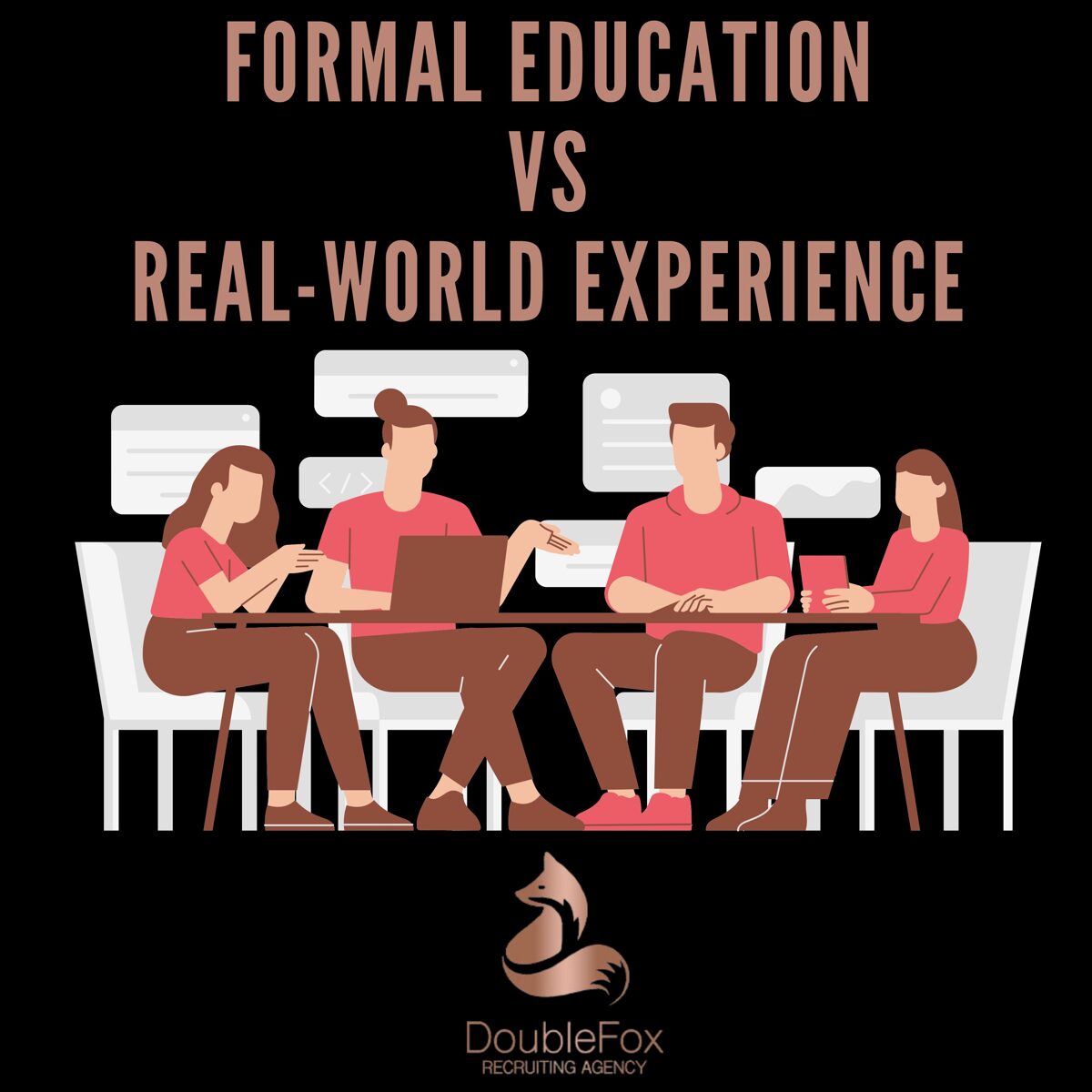FORMAL EDUCATION VS REAL-WORLD EXPERIENCE
In the quest for career success, there's one question that always divides opinions: what's more important - traditional education or real-world experience?
Formal Education: The Foundation of Knowledge
👉🏽 Fundamentals: Traditional education provides individuals with a strong theoretical foundation in their chosen field. It offers comprehensive and structured learning approaches that cover essential concepts, theories, and best practices.
👉🏽 Specialized Expertise: Higher education programs often offer specialized tracks, allowing individuals to gain deep knowledge in specific areas. These focused skills can be highly beneficial for starting a career in a particular field.
👉🏽 Networking Opportunities: Educational institutions foster networking and collaboration among peers, professors, and alumni. These relationships can lead to valuable professional connections, mentorship, and job opportunities.
👉🏽 Signal of Discipline and Commitment: Completion of traditional education programs demonstrates discipline, resilience, and the ability to achieve long-term goals. Employers often view a diploma or degree as evidence of commitment and dedication.
Real-World Experience: Application of Practical Knowledge
⚡ Practical Application of Knowledge: Real work experience allows individuals to apply their skills in practical situations, acquiring hands-on skills and insights into various real-life scenarios. This experience develops problem-solving abilities, enhances critical thinking, and promotes adaptation to dynamic work environments.
⚡ Industry Insights: Industries and professions are constantly evolving. Real experience allows professionals to stay well-informed about the latest trends, technologies, and challenges in their field. It provides an understanding of industry practices and helps keep abreast of all things new and relevant.
⚡ Personal Attributes: Real-world experience helps individuals develop a wide range of personal skills, such as communication, teamwork, adaptability, and leadership. These skills are highly valued by employers across all industries and can be applied in various professional situations.
⚡ Professional Networks: Building relationships with colleagues, mentors, and industry professionals through real experience can open doors to new opportunities. Networking within the industry can lead to job referrals and new experiences.
Balancing Education and Experience
✅ Lifelong Learning: Recognize that education doesn't end with a degree. Continuously seek opportunities to enhance your knowledge and professional development by obtaining certifications, participating in courses, and training sessions.
✅ Engage with Experienced Professionals: Communicate with experienced professionals who can provide you with valuable insights. Utilize their knowledge to gain practical insights into various industry topics.
✅ Focus on Skill Development: Identify the key skills needed for career success in your chosen field and actively work to acquire them. Look for opportunities that allow you to develop and demonstrate these skills.
If you need assistance with recruitment, CV creation, or improving your LinkedIn profile, contact us: [email protected] https://www.doublefox.net
#recruitment #talentacquisition #HR #headhunting #career #skills #education #experience #LinkedIn #interview

